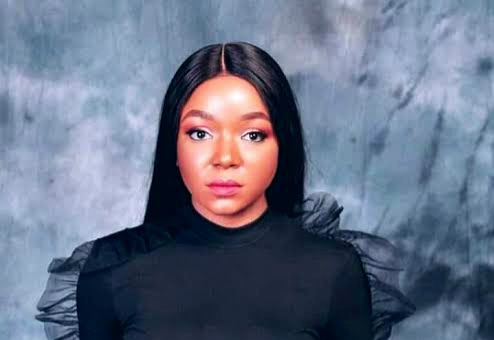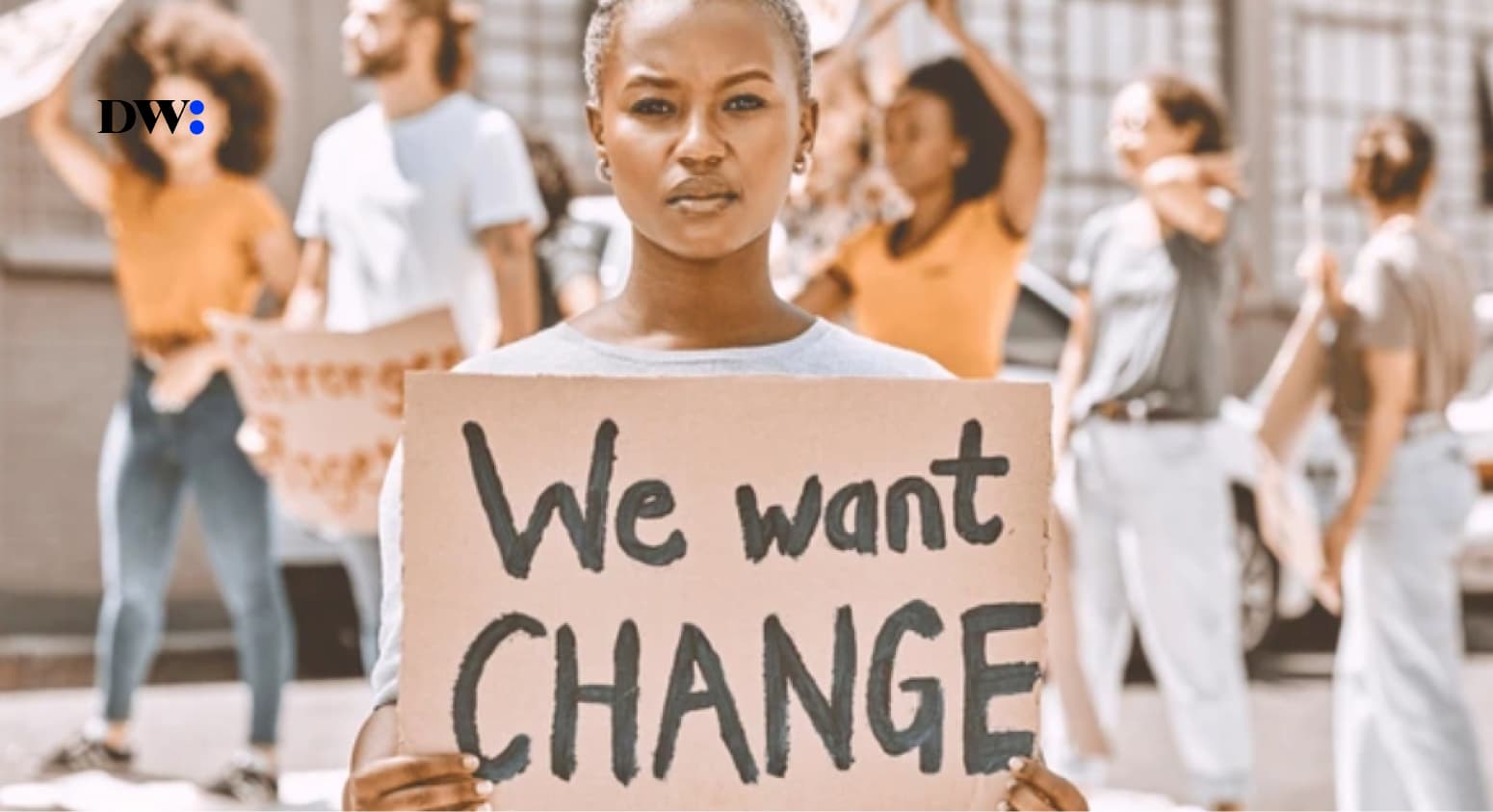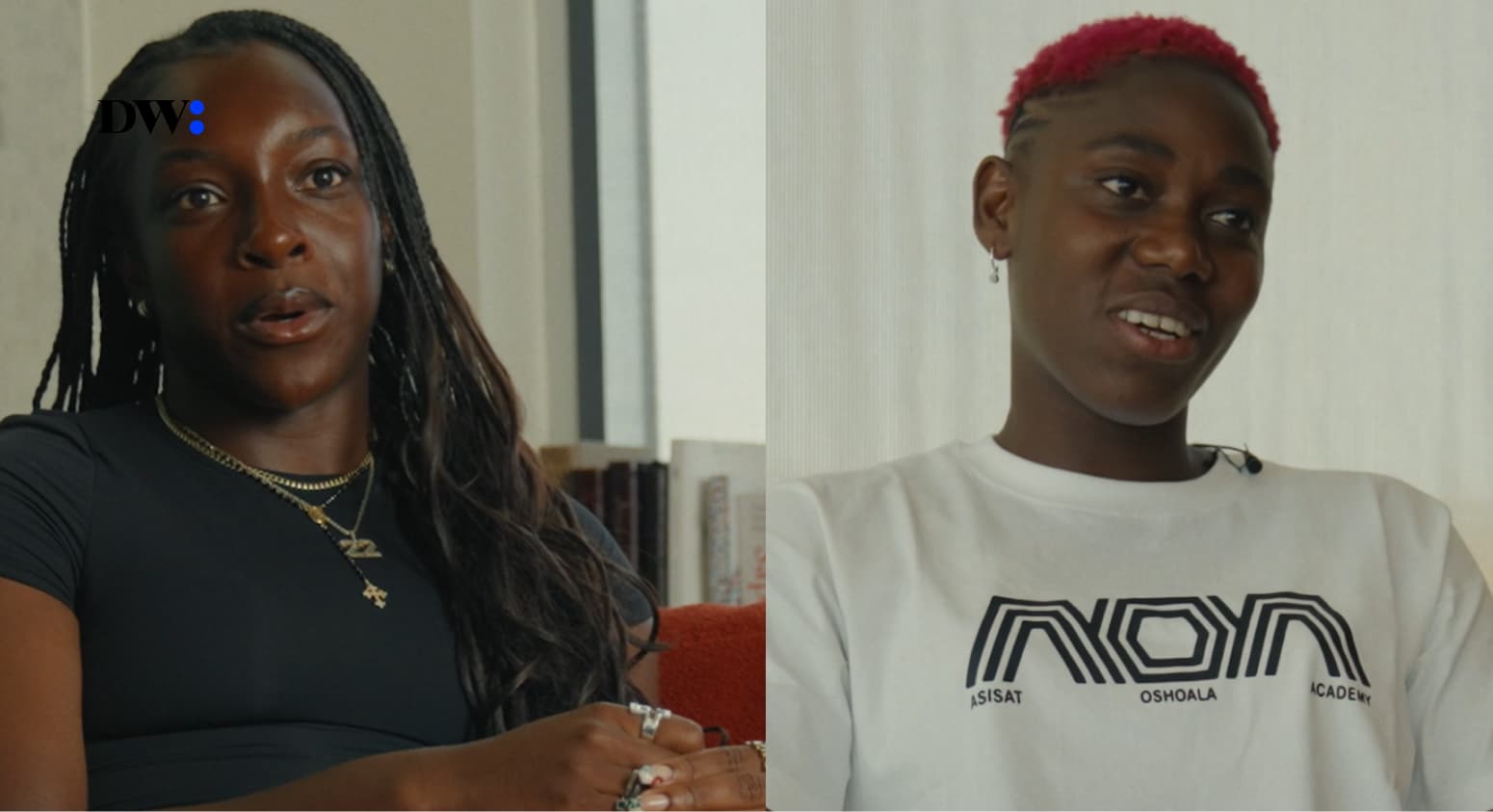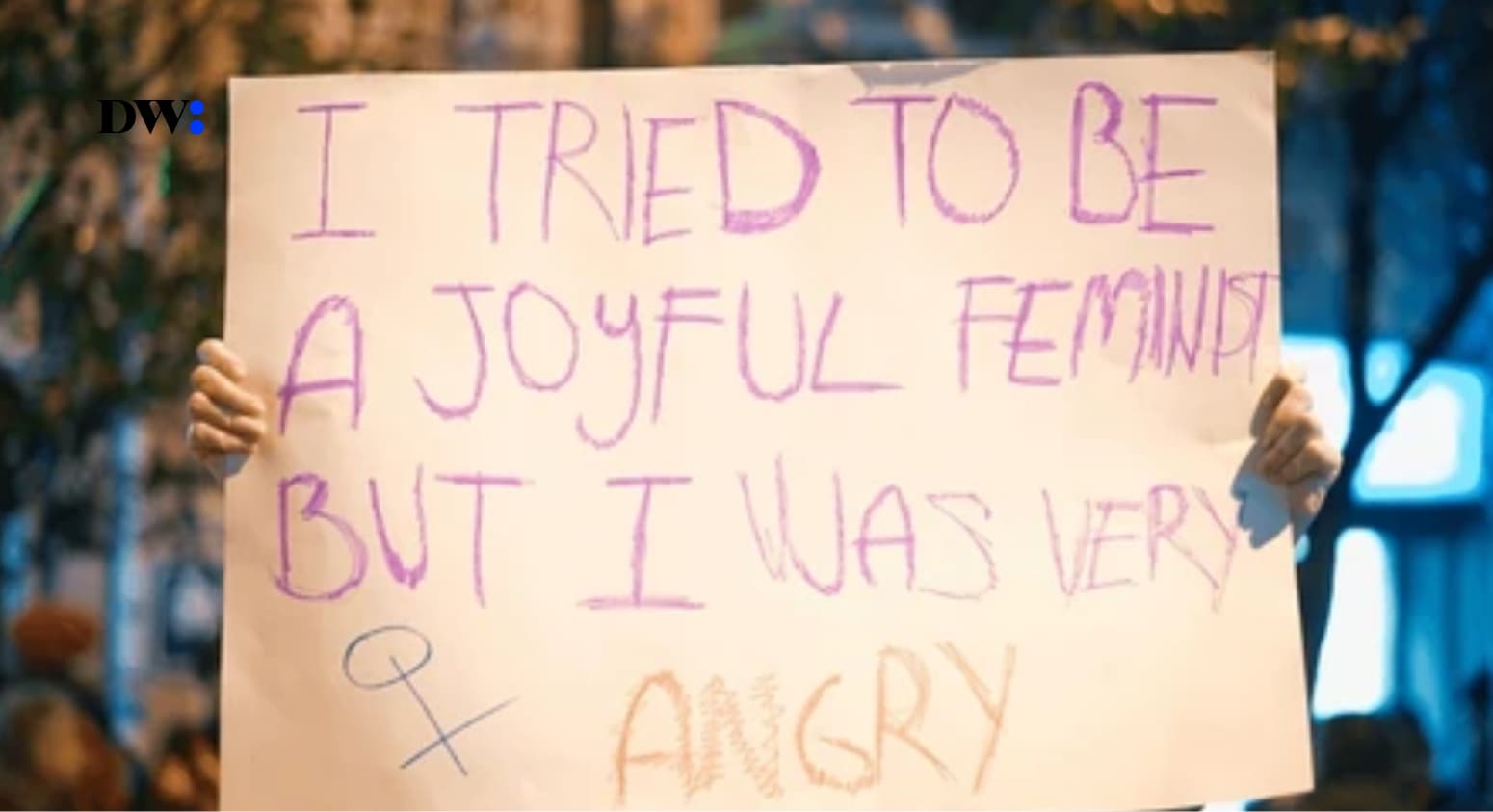Starting a political career at a young age, Ndi Kato has become one of the strongest female political figures from Northern Nigeria. First running for a seat in the Kaduna State House of Representatives when she was 28 years old and later built the Dinidari Foundation to empower women in politics and fill the gaps she noticed while actively campaigning for a political office. Speaking to Ndi made me understand what it is like for women in Northern Nigerian politics. She introduced herself to me as the interview began as a 33-year-old political activist and mother from Karfanchan, Kaduna State.
Aisha Kabiru Mohammed:
How did you begin your journey into politics?
Ndi Kato:
Usually, when women find themselves in spaces like this it is to solve a problem. You would hardly find a woman going into politics for the sake of ambition. We have been socialised to want to solve problems, to take care of everyone. It comes from realizing that we need authority to solve these problems and attempting to get that power to solve those problems. That was how I began my journey.
I had always spoken about politics From an early age. I was very aware of politics. My Mother was a lecturer of English and African Literature and I had access to many books and I was able to read about Nigeria’s history, the notable people and the turmoil we went through as a country. This inspired many articles and think pieces I wrote when I was in my early 20s.
Another thing that pushed me to go for a political position were the killings in Southern Kaduna where I am from. I felt the need to address the situation and provide relief. And I went on many spaces both local and international to speak about the killings. While doing this I realised that the people speaking out against the killings were not empowered to do more about it, they needed to talk about it at the National Assembly. The next step was the idea of getting the power to effect change. I thought if I had the power to change things I could do more. This led me to run for office. I ran for office in 2019 and didn’t get the ticket but I still decided to continue.
Aisha Kabiru Mohammed:
You mentioned that there were not many people from southern Kaduna in the National Assembly what was it like running for office as a young woman and someone from southern Kaduna?
Ndi Kato
It was hell. The Not Too Young Bill helped me to run because I was under 30 at the time. When I went to get the form the very first thing that was said to me was “Oh, This is the Ndi Kato, I’ve heard so much about you. You’re smaller than we expected you to be”.
Another statement I heard was “You’re cute. Come and pick the form you won’t win, but perhaps you’ll be noticed enough to get a position in government if PDP wins”.
There were a lot of comments like that. Right from the beginning, the party executives who were supposed to be unbiased umpires told us things like women usually run just to be seen so they can get positions in government. I also witnessed other women get undermined.
One candidate was told that she would not be allowed to give southern Kaduna State to her Husband who was from Taraba State. My cousin running in another party who was from the same place as her husband was told by the people of our tribe that they would not support her because her husband wasn’t from our tribe.
Aisha Kabiru Mohammed:
It seems like apart from being women, another hurdle that had to be crossed was tribalism.
Ndi Kato:
Yes and so many other things. As an unmarried woman, I was called Ashawo a lot of times. I also faced violence on the day of the primaries young men had to escort my car to the venue because there were people outside from my opponents waiting to attack me.
Aisha Kabiru Mohammed
Was there a sort of mentorship between older and younger women?
Ndi Kato
Regarding Mentorship, it was a bit tricky for me. An older woman who joined PDP in 1999 has probably not gotten any political position yet and those who have gotten might feel some sort of unfulfillment because they’d think about their mates who got positions and went on to do bigger things while they just managed to get that position.
They haven’t gotten to the point where they can be Godmothers. The system has not allowed them to be Godmothers. We are all struggling for the same things, old and young women alike. The way mentorship works in Nigeria would mean that if the mentor hasn’t gotten a House Of Rep or Senate position the younger person under them cannot dream of it.
For instance, if there’s a meeting and there have to be women there your mentor isn’t thinking about calling you to that meeting, because in Nigeria It’s let your mentor go before you go. I did have a sort of informal mentorship with Josephine Iyom Anene.
Aisha Kabiru Mohammed
Was there ever a sort of sisterhood amongst the women running for different political positions a sort of comradery between all of you?
Ndi Kato
In my local government and my senatorial zone, something like this existed among the young women but it was used to go on courtesy visits to the men to ask for favours and I was not up to it. Because of how small the space was, there would be unhealthy competition. So cultivating sisterhood was not easy.
We had so many things to do and so many competitions that we could not do it. While the men had time to go to their constituents and do the grassroots work we were always attending training and programs run by international organisations.
Aisha Kabiru Mohammed
While men had more time and leverage to go to the grassroots, the women were made to attend training?
Ndi Kato
Different trainings. Your name would be taken down for training for women in politics and women running for political office. Have you ever heard of training for young men in politics?
Aisha Kabiru Mohammed
I have never heard of one.
Ndi Kato
Men were in the grassroots while we are running from one program to the other thinking we were doing something, the work is in the grassroots. They usually come in at the time when you’re running for office, even the youth-led organisations. At some point, I told them I wasn’t running again.
Aisha Kabiru Mohammed
If you could tell them what was more important, what would you tell them?
Ndi Kato
I would tell them to focus on affecting systemic change Firstly behavioural change for Nigerians toward women’s participation in politics and women’s equality. Then a shift into changing laws We have the GEO bill the 111 extra seat bill. The problem isn’t that more women aren’t trained in politics that’s definitely not the problem. It’s that we need systemic change. Men aren’t born with an inherent knowledge of political participation. I believe these bills and laws would help. It worked in Kenya, they now have many more female governors and senators
Aisha Kabiru Mohammed
Was there any Female Northern Nigerian politician you looked up to when you started your journey?
Ndi Kato
There are many Northern women who have done very well and I am very proud of them, but I believe my journey has been my journey. I’ve been creating my path. I’ve just been focused on trying to solve problems. Remember I said many women do not enter because they are ambitious. I entered because I want to solve problems along the way. I realise I want a career like Ngozi Okonjo Iweala’s. For me, it isn’t regional. My career transcends politics. My journey so far has been struggling to put one success in front of the other and trying to solve problems and it has been filled with so much struggle that I’m not really looking in that direction. There are Women like Ninadi Usman from southern Kaduna who have done so well She was Minister of finance and a senator at one point. To be honest I saw her career and saw that she went through a lot. I saw her succeeding and at the same time fighting for her life and I never wanted the struggle. It’s the same thing with other women in Northern Nigerian politics. And it’s hard to aspire to all that struggle and being undermined. However, I wouldn’t want to leave this conversation without talking about Hajia Gambo Sawaba and what she did for women in Northern Nigerian politics. She fought so hard to be seen and heard and she endured so much brutality for it. Without women like her, we wouldn’t be able to do what we do today. The journey is filled with so much struggle and it isn’t aspirational.
Aisha Kabiru Mohammed
Can we talk about your foundation, the Dinidari foundation? Did you set it up before running for office or after?
Ndi Kato
The Dinidari foundation works on women’s rights, human rights and women’s participation in politics. I started it because of the crisis in southern Kaduna. Before I ran for the House of Rep ticket I was already sharing blankets and relief materials. I was trying to help women, widows and women who had given birth in IDP camps when someone mentioned registering the foundation, and I registered it in 2016. We have done so much good work. I’ve always believed in cultural and behavioural change. I always believe in targeting community leaders, Cultural and religious leaders People I would call gatekeepers. We’ve conducted a lot of training for gatekeepers in response to sexual and gender-based violence. In terms of politics we’ve recently released a report on women’s participation in politics and we hope it will help out.
Aisha Kabiru Mohammed
In the 2019 elections you were running for a political office, but in the just concluded elections you were a spokesperson for Labour Party. What are your opinions on both electoral processes from the perspectives you’ve worked with?
Ndi Kato
Being a spokesperson is a much more physically comfortable position than running for a political office. But as a woman, it’s still a thing where my work has been undermined. Even when you get to certain positions there’s a lot of explanation that goes on with regard to whether you deserve the position or not. And I’ve experienced that. Because It’s me holding this position suddenly it doesn’t seem so important.
Aisha Kabiru Mohammed
Labour Party is considered a liberal party compared to PDP. Has it been easier working with Labour Party than it was to work with PDP?
Ndi Kato
Yes, the Labour party is liberal but the context is still Nigeria. Anywhere you work as a Nigerian woman your experience will always be gendered.
Aisha Kabiru Mohammed
What are the plans you have for your work and the foundation in the future?
Ndi Kato
We’re still doing what we do now. Training people on the response to sexual and gender-based violence. Training gatekeepers on SGBV response. Our work is mainly with political parties on getting affirmative action and creating women’s wings in political parties. I’ll be taking a back seat in politics and on the board of the foundation. Also making sure more women are heading organisations. In terms of my career in politics, I’m quite ambitious. I want a career that transcends Nigerian politics.
Aisha Kabiru Mohammed
Do you have any advice for young women who want to have a career in politics, especially Northern Nigerian women?
Ndi Kato
I was going to speak to Northern girls. We see people getting awards in Nigeria and we barely find Northern Nigerian women. My advice would be to take up as much space as possible. Be seen, be heard. I’m glad there are more young women coming up and I hope they find something from my own journey. At all costs, do not shrink. The world is ready for women like us. Your journey means something to another woman.





